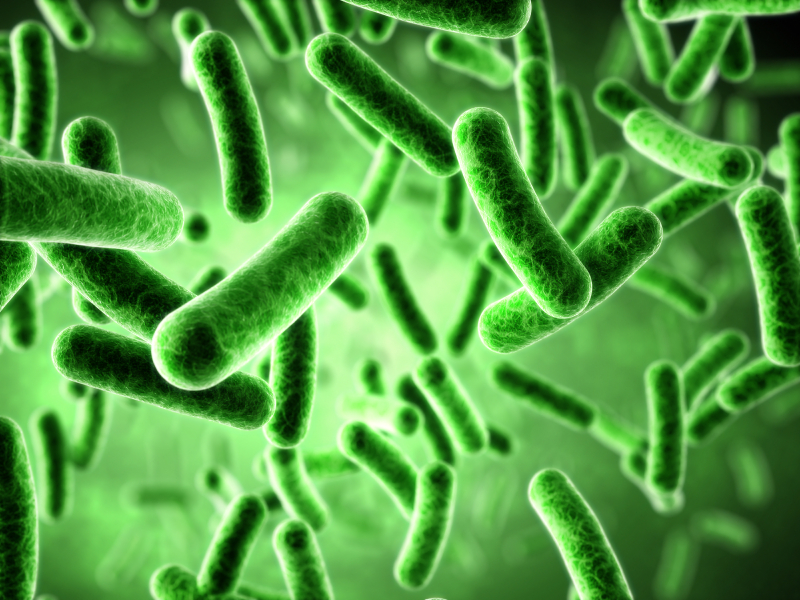You Are What You and the 100 Trillion Bacteria in Your Gut Eat
 We have all heard the saying you are what you eat. While there is a lot of truth to that statement, it is becoming clear that it may need to be updated to “you are what you and your gut bacteria eat.” Research into the function of the 100 trillion bacteria that call our gastrointestinal tract home has been exploding over the past few years. We now know that they are not merely uninvited “house guests” but instead play active roles in our health as well as metabolic activity effecting our digestion, immune function, hormonal function and mood.
We have all heard the saying you are what you eat. While there is a lot of truth to that statement, it is becoming clear that it may need to be updated to “you are what you and your gut bacteria eat.” Research into the function of the 100 trillion bacteria that call our gastrointestinal tract home has been exploding over the past few years. We now know that they are not merely uninvited “house guests” but instead play active roles in our health as well as metabolic activity effecting our digestion, immune function, hormonal function and mood.
One area of research that has received much attention is the discovery that gut bacteria have an effect on the development of obesity, metabolic syndrome and type 2 diabetes. People with higher levels of bacteria in the Firmicutes family and lower levels of bacteria in the Bacteroidetes family seem to be more likely to be obese and are at an increased risk of developing diabetes and metabolic syndrome. The increased risk of diabetes and metabolic syndrome appears to not just be a result of the obesity, but instead is related to effects on inflammation and liver function. The increased weight gain is in part due to the fact that some bacteria in the Firmicutes family are very good at digesting starches and fibers that you can’t digest and converting them in to short chain fatty acids that the body can then use as energy. This ads to the net energy intake on a day to day basis and so you may be getting more “calories” out of your food than you think. The bacteria that do this are not pathogenic or “bad” bacteria. In fact some of them are strains of Lactobacillus bacteria usually thought of as being health promoting.
A study published in Biology Letters in January found that people living in northern climates, such as Maine, have higher levels of Firmicutes bacteria and lower levels of Bacteroidetes bacteria and that this correlates with the rates of obesity in the regions studied. From an evolutionary standpoint there is a benefit to this as an increase in energy production would increase the likelihood of survival through the cold harsh winter. Why this shift occurs is not known at this time. It may be that there is an environmental input such as temperature or amount of daylight that stimulates the growth of Firmicutes bacteria. It is known that dietary factors can have a large effect on the balance of Fimicutes and Bacteroidetes bacteria. A diet higher in fat and refined sugars will increase Firmicutes levels while a diet lower in fat and higher in plant polysaccharides (found in fruits, vegetables, legumes, and whole grains), will increase the levels of Bacteroidetes bacteria. In general there does tend to be an increase in fat and sugar intake during winter and a decrease in fresh vegetable intake the further away from summer that we get.
A big pharma approach to this (and I’m sure some drug company is working on this) would be to design an antibiotic that kills only the Firmicutes bacteria and spares that Bacteroidetes bacteria. While this could have short term benefits, in the long term many of the Fimicutes bacteria have benefits and getting rid of them could lead to increases in allergies, depression, and inflammatory bowel disease to name but a few.
A better approach would be to eat a diet lower in saturated fat and sugar and eat more plant foods. In addition,a study published in the journal Chemico-Biological Interactions showed that a high intake of poly-phenols found in green tea, apples, and cider or wine vinegar preferentially increase the levels of Bacteroidetes bacteria. While Lactobacillus bacteria can have many benefits, it may also not make sense to supplement with them when levels are already high. Focusing on probiotics higher in Bifidobacteria (a member of the Bacteroidetes family) along with prebiotics and colonic foods that increase their levels may be more beneficial and less likely to negatively impact the Fimicutes/ Bacteroidetes balance.
You can find out what your ratio of Firmicutes to Bacteroidetes bacteria is by doing stool test that looks not only at this ratio but also uses DNA markers to determine the levels of various bacteria in your gastrointestinal tract. Having this information can help in determining dietary changes that will be helpful along with determining if probiotics are necessary and if so what type. If you are interested in finding out more about this test, or if you would like to have the test done, you can call my office at (207) 805-1129 or email me at [email protected]
